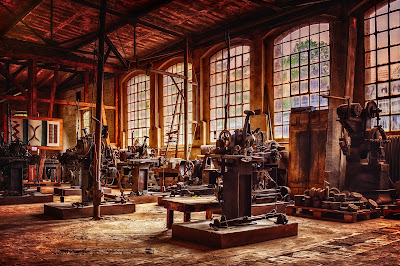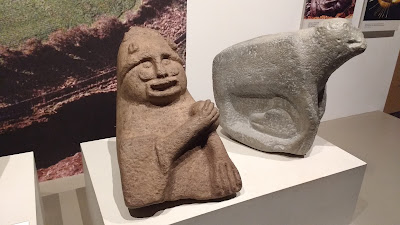How taking a closer look at your family tree can help you get to grips with climate change
How taking a closer look at your family tree can help you get to grips with climate change
By Flossie Kingsbury, Aberystwyth UniversityEngaging people when it comes to climate change can be challenging. Climate conversations are often technical and dry, making it hard to see how it connects to our own lives. As a historical researcher I’ve been figuring out how we can make this connection clearer, and believe that taking a look at our family histories might hold the answer.
 |
| Tracing our ancestors’ connections to colonialism and industrialisation can help us personally connect with the climate crisis. Photo: Pixabay |
While climate change might seem abstract or distant, our own history is inherently personal. Tracing a family tree can show how historical events, including those that influenced climate change, altered life courses. Through pilot research with my own family tree, I’ve found that family history can be a useful tool for understanding how the root processes that kickstarted climate change created the world we now inhabit.
Put simply, climate change is the result of two processes: industrialisation and colonialism. Industrialisation is when a society’s primary mode of production shifts from manual agricultural labour to machine-aided manufacturing. Colonialism is when one nation occupies and exerts control over another, usually involving violence and exploitation.
Both processes are underpinned and sustained by a culture of extraction: the mindset, still present in western societies today, that all resources (natural, like trees, and cultural, like traditions) exist to be capitalised on in some way.
 |
| The industrial revolution was a major contributor to climate change. Photo: Pixabay |
In British history, this is reflected in the intertwined growth of the industrial revolution and the British empire. Both were fed by extracting coal to fuel factories, railways and steamships; extracting the raw materials required to produce goods; and exploiting land and labour from subjugated nations and the British working class.
Family branches
Let’s look at some examples from my own family. Samuel Polyblank (born around 1816), one of my great-great-great-grandfathers, was a shipwright from London’s East End. The ships he worked on helped to feed demand for international trade, taking goods to and from the colonies. They may even have been used by the East India Company, the world’s first global corporate superpower, and a key player in colonial rule and exploitation in Asia.
Through his work, Samuel Polyblank found himself caught up in, and working to support, a system whose impacts – including widespread deforestation, pollution, soil sterilisation and biodiversity collapse – continue to be felt today.
Another example is Daniel Winchester (born around 1791). One of my great-great-great-great-grandfathers, he was an iron founder from Bristol. Bristol is famous for its numerous connections to the slave trade and to the British empire’s Caribbean plantations. And what those plantations relied upon very heavily were imported supplies for fossil fuel-driven processing plants and factories – which were frequently made of iron.
I don’t know for certain if Daniel Winchester’s work ended up in British plantations: but since at the time there were iron foundries in Bristol that made things which did, it’s not unlikely. And I know that Daniel made enough money to buy his own home and leave it to his son, a rare occurrence at a time when only a tiny proportion of Britain’s homes were occupied by their actual owners.
Although the Winchesters were not truly wealthy, still working manual occupations and relying on child labour to supplement their income, they were able to start passing down intergenerational wealth: a hallmark of privilege that was only available to a small minority. It seems reasonable that the reason they were able to do this is because they capitalised, knowingly or not, on industrial demand that came from slavery.
This is uncomfortable to acknowledge, but if we want to understand the roots of climate change, it’s exactly what we should consider. It’s improbable that either Daniel Winchester or Samuel Polyblank set out to promote slavery and colonial violence any more than they set out to promote climate change. The world they lived in meant it was possible to participate in this extractive, exploitative system without confronting it, in the same way we struggle to understand our individual influence on climate today.
How to engage
One challenge of personally engaging with the climate crisis is learning that your ancestors were complicit in things that you would rather be distanced from. But this isn’t about blaming our ancestors, who may well have been exploited themselves.
 |
| Protesting is one way to participate in the climate movement. Photo: Pixabay |
Instead, understanding these connections can help encourage us to prioritise climate justice and eco-friendly behaviours in our own lives, from cutting down on meat and unsustainable travel to writing to your elected officials about environmental issues in your community. So how might you think about your own family tree’s links to climate change? Here are my top questions to consider:
Think about where the things your ancestors used or bought came from, and where things they may have been involved with making were sent. How do these connect them to the industries and trade networks born of colonialism?
If they were wealthy, what was the source of that wealth? If they weren’t, what benefactors funded any hospitals or workhouses they may have used: and would those have existed without industry and colonialism?
What did they pass down? Think about not just objects but also any wealth or property, as well as skills and cultural practices. How might these legacies be transformed into climate-friendly resources, for example through donating to environmental groups?

Flossie Kingsbury, Postdoctoral Research Associate in History, Aberystwyth University
This article is republished from The Conversation under a Creative Commons license. Read the original article.



Comments
Post a Comment